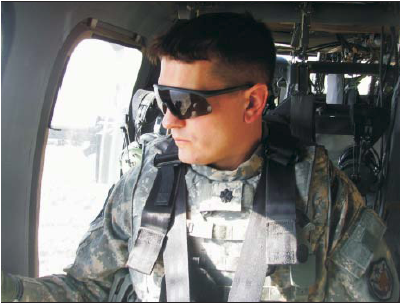|
Originally published 15 June 2016
The tragic events of 12 June 2016 in Orlando Florida have reignited debates that have mistakenly raged for years – debates which have dragged to the surface a term used during each of the attacks on U.S. soil in the last several years: Lone Wolf. I have never been clear about what this phrase means. I think it is meant to express the notion of a single terrorist who operates independently of a larger organization and then conducts the attacks at a time and place of his or her choosing. Such a term may have applied a decade ago, but the world of global terrorism is manifestly different today than it was in 2006. The term no longer fits. Al-Qaeda popularized franchise terrorism - terrorists who wanted to adopt the al-Qaeda name needed to adopt a level of indoctrination and accepted practices. This is similar to many franchises in the business world. If one wants to be a hamburger franchise then one needs to use the parent company uniforms, follow the same menu, and conduct the same type of service. Essentially, this is cloning the headquarters’ behaviors and procedures. However, al-Qaeda also expanded to include freelancers. These were smaller groups or individuals who didn’t necessarily adopt the bureaucratic association with al-Qaeda, but they did accept the basic premises and doctrine. One might characterize such freelancers as Lone Wolves. In the years since, ISIS has gone one step further: crowd-source terrorism without the need for formal linkage to the parent organization. Any person anywhere at any time can declare that he or she is acting in the name of ISIS and that is sufficient. There is no need for coordination, planning, money, indoctrination, association, or hierarchical structure. A person could be a non-Muslim or a non-practicing Muslim one day and a crowd-sourced ISIS terrorist the next day. No purity test. No worthiness needed. Just the simple declaration and the action. This is not a lone wolf. This is an actor who, without the declaration to ISIS, would be considered random. This seems to have been the case in Orlando, San Bernardino, Philadelphia, and Garland. Using the previous franchise example, ISIS has empowered every person who barbeques hamburgers in their back yard to declare themselves a fast food chain and act. This is a business model that benefits ISIS. As an organization, they have no resource commitment and yet they receive tremendous international press coverage of an ISIS attack in the United States, even as details continue to surface regarding the complex motives of the perpetrator. The murkier details will not overwhelm the initial headlines. This is part of the ISIS strategy and the strategy of those like-minded groups. ISIS and their ilk want to create a world wherein there is no gray and every Muslim must choose between Islam or hedonism and every Muslim. In their own magazine (Dabiq, issue 7, pages 54-66), ISIS calls for "The Extinction of the Grayzone". Why does this matter? Though there are always disgruntled people, few of them will become violent. The response of American citizens to this latest and any future atrocity will define the environment and likelihood for future attacks. Muslim residents and citizens need to feel at home and that they are a part of America. Two recent articles examined the dangers of forcing people to decide between secularism and God. These articles reference debates that raged in Belgium and France (2011-2012) regarding the wearing of the hijab (Muslim head scarf) and the niqab (veil). A possible result of those debates was that Muslim young men and women came to believe that they were not really Belgian or French. In that environment many sought to fight for Islam abroad. Muslim-Americans are watching and listening to responses and comments. Is this their country and home or are they condemned to be forever foreign in an alien and hostile land? Americans should not live in fear of offending a future criminal. We should instead recognize each attack for what it is: a singular instance of a person seeking to gain notoriety for themselves or their cause by causing harm to other people. In most attacks in the United States, the perpetrators also struggle with mental illness or they were isolated through choice or perception from the associations and opportunities which are possible in America. The antidote might sound trite but it can be effective: every day we should be good and involved neighbors as well as good and involved citizens. The best protection is the strongest community relationships. It is reaching out to know, talk with, and serve those around us. It is not sufficient to hide behind fortifications. One has to venture out and build communities which serve and respect each other. Only after we have strong relationships will neighborhoods police themselves and report bad actors. This murderous event happened a week into the Islamic month of Ramadan. This is a time for Muslims to fast, reflect, and become better. This is also an opportunity for non-Muslims to reach out and learn something of a stranger, a newcomer, or a foreign belief. Being a good neighbor and citizen is the right thing to be and also the right way to secure our safety and freedom for future generations. Every call for greater security from the government will mean fewer freedoms for all of us and only generate more distrust and create a greater and murkier pool where the spawn of extremism will grow.
1 Comment
|
AuthorBrian L. Steed is an applied historian, Archives
February 2024
Categories |
Proudly powered by Weebly

 RSS Feed
RSS Feed